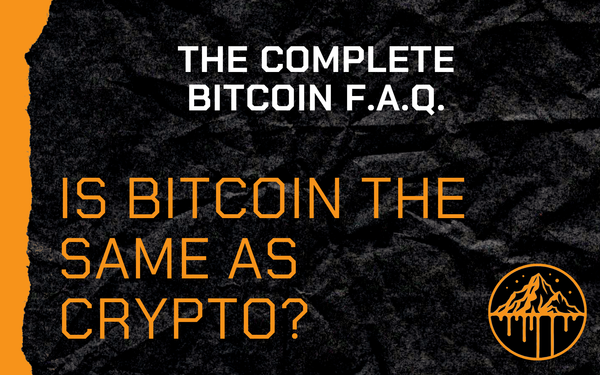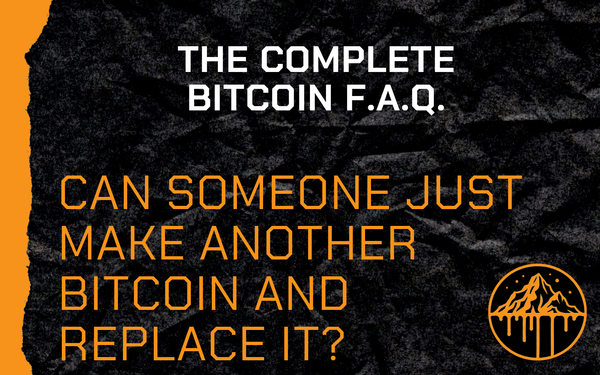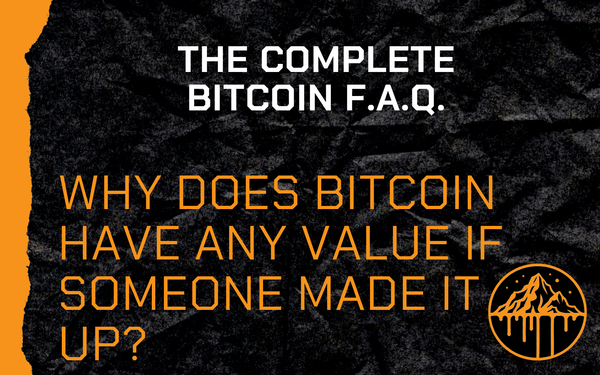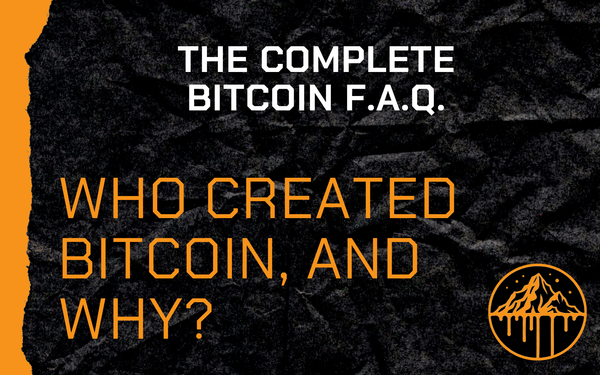What makes bitcoin different from money I already use?
“The Complete Bitcoin F.A.Q.” is a series for total beginners. Straight answers to real questions—no hype, no technical nonsense.
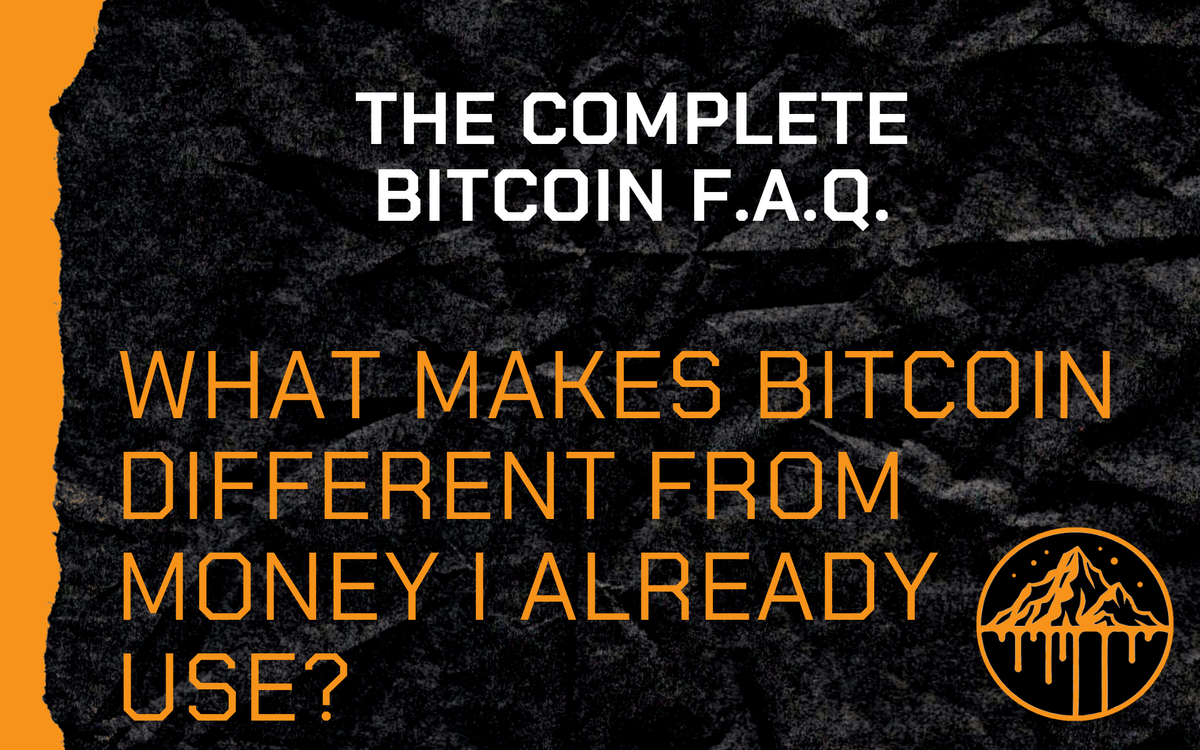
“The Complete Bitcoin F.A.Q.” is a series for total beginners. Straight answers to real questions—no hype, no technical nonsense.
It doesn’t have a boss.
That’s the biggest difference.
The U.S. dollar—and most other currencies—are controlled by a central authority, like a government. That means someone gets to decide how much money exists, who gets it first, and what the rules are.
Bitcoin doesn’t work like that. There’s no central bank. No government. No CEO.
Instead, Bitcoin runs on software that follows the same rules every ten minutes, every day, no matter what. This software was set in motion in 2009 and it can theoretically continue forever.
Only 21 million bitcoin will ever exist. You can verify that yourself. No surprise inflation. No secret meetings. No “trust us, we’ve got this.”
For a lot of people, that sounds… uncomfortable.
“Wait—if no one’s in charge, how can it be safe?”
That’s Status Quo Bias talking.
We’re wired to stick with what we know, even when it’s not working. We assume money has to come from a government—because it always has. We get used to inflation, bailouts, and broken promises. It’s just the way things are.
But what if that’s not the way they have to be?
Using Bitcoin is kind of like switching from postal mail to email. Old money systems are slow, permissioned, and run by giant bureaucracies. Bitcoin is instant, global, and open to anyone—no stamp, no office, no middleman.
It’s money that doesn’t care who you are, what country you live in, or what kind of inflation drama your central bank is cooking up this week.
That’s what makes it different. That’s what makes it better.
Wealth melts. How much you got left?
Disclaimer: Melting Wealth is not financial advice. It’s a wake-up call. Think for yourself, question the system, and take responsibility for your decisions. Your money, your risk, your move.


